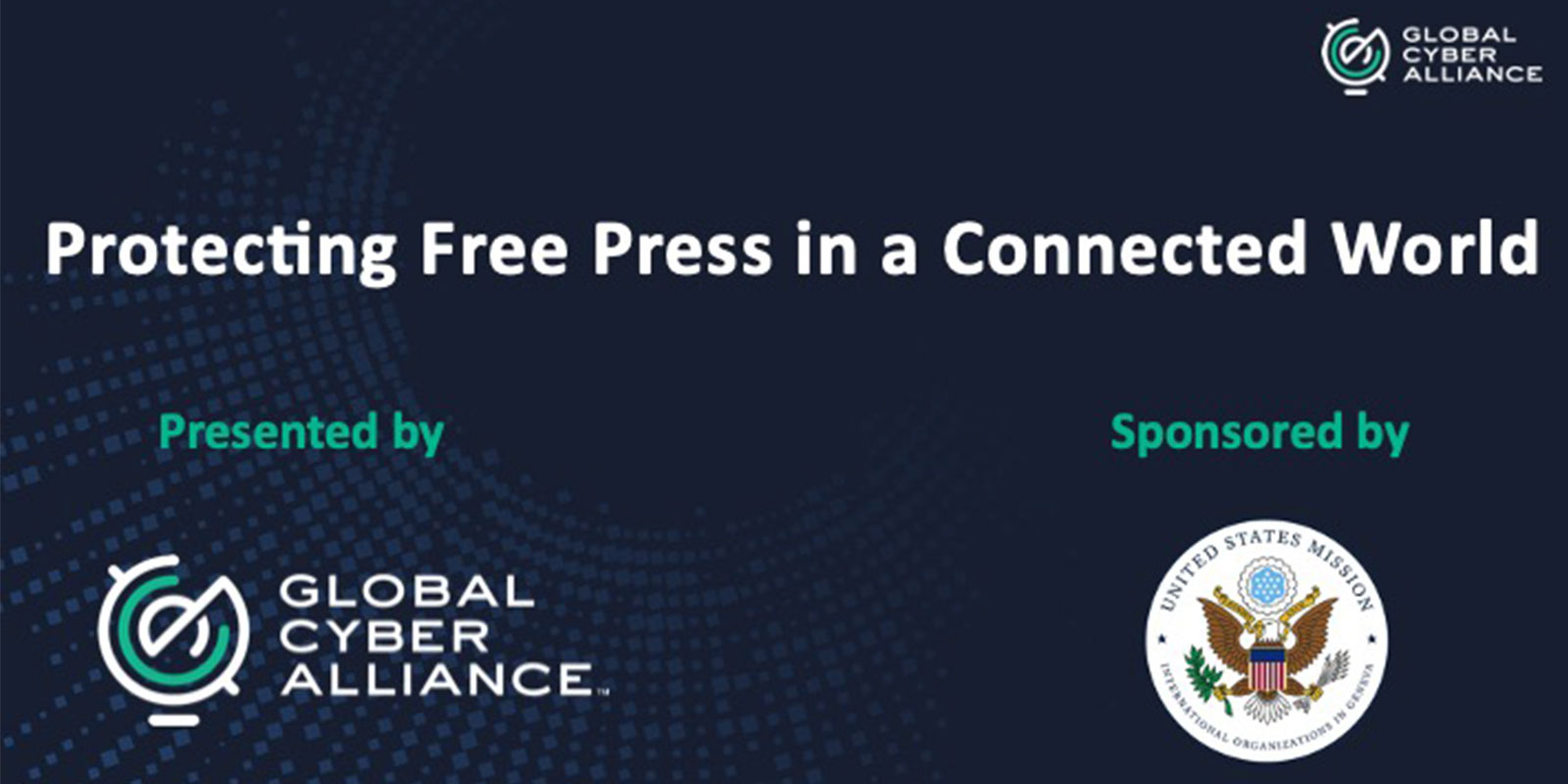Copyright @ 2025 Global Cyber Alliance | Sitemap

To support World Press Freedom Day, the Global Cyber Alliance launched its Cybersecurity Toolkit for Journalists in Europe with a panel discussion and a workshop for journalists. The event was sponsored by the U.S. Mission in Geneva. The topic for the panel discussion was “Protecting Free Press in a Connected World.” Today, news is made, stored, and shared on the Internet. The Internet has become a privileged place to exercise freedom of press and an essential vector of information. But faced with the desire of certain actors to control the Internet and silence dissident voices, journalists are constantly the target of cyber attacks – whether reporting on crime, politics, or by being a target of the spread of disinformation.
The panel discussion, moderated by Derek Bowler, Head of Social Newsgathering, Eurovision News Exchange at EBU Media, addressed the particular threats facing journalists online and how they often translate offline, and he discussed how we can guarantee their rights, safety, and independence. Ahana Datta, researcher at University College London, explained that most actors have time and money constraints. They will look for the easiest way to attack journalists. Making things more difficult for them by adopting basic cybersecurity practices can prevent most attacks. “Even very skilled journalists can be a little scared of technology, but they need to make sure they can manage the risks,” added Ciaran Martin, Professor of Practice at the University of Oxford. Online vulnerabilities open up possibilities for harassment and intimidation too, lending added challenges in an industry where vulnerable demographic groups are under-represented. Beatriz Becerra, Director General of the Citizen Participation, External Action, and Transparency at the Municipality of Málaga, raised the threat to media diversity as a challenge to the freedom of press. “In times of widespread uncertainty, with the consumption of information soaring, and the political and economic obstacles to journalists and the media, the challenge that emerges is definitely trust, confidence, reliability, and both safety and security. This is the key to revalidate its character as a public utility service and to retain a demanding and faithful audience that feels part of a necessary club in defence of fundamental rights.”
You can view the entire event below, which includes a GCA workshop for journalists on the importance of cyber hygiene and the use of the free tools in our Cybersecurity Toolkit for Journalists. We welcome your feedback and input and would enjoy hearing from you via email or through the GCA Community Forum.
The author, Kayle Giroud, is the Partnership and Business Development Assistant, EU and Africa, at the Global Cyber Alliance. You can follow her on Twitter and connect with her on LinkedIn.

